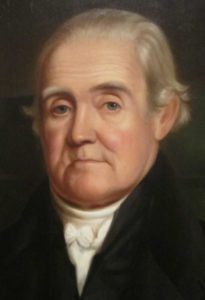West Virginia Senators Introduce Bill That Would Require Schools to Offer an Elective Course on the Bible
 CHARLESTON, W.V. — Two West Virginia senators have introduced a bill that would require all public and private schools in the state to offer an elective course on the Bible.
CHARLESTON, W.V. — Two West Virginia senators have introduced a bill that would require all public and private schools in the state to offer an elective course on the Bible.
Senator Mike Azinger, R-Wood, and Senator Sue Cline, R-Wyoming, presented Senate Bill 252 on Thursday, which is patterned after a bill that was signed into law in Kentucky last year.
“In all public, private, parochial and denominational schools located within this state there shall be given: (1) An elective social studies course on the Hebrew Scriptures, Old Testament of the Bible; (2) An elective social studies course on the New Testament of the Bible; or (3) An elective social studies course on the Hebrew Scriptures and the New Testament of the Bible,” the proposed legislation reads in part.
It states that its purpose is to “[t]each students knowledge of biblical content, characters, poetry, and narratives that are prerequisites to understanding contemporary society and culture, including literature, art, music, mores, oratory, and public policy,” as well as [t]he influence of the Hebrew Scriptures or New Testament on law, history, government, literature, art, music, customs, morals, values, and culture.”
The bill also requires schools to stay neutral toward religion and not promote or disparage any particular belief or unbelief.
“Our country was built on the Bible,” Azinger told the Parkersburg News and Sentinel.
He outlined that the Bible is a fundamental part of American history, as our laws were modeled after its statutes, schools were formed with the desire that children learn to read the Bible and colleges were established with the Scriptures as their foundation.
The legislation has been sent to the Education Committee for consideration. If passed, the course would be an elective offering, that is, only for those interested.

As previously reported, throughout early America, textbooks such as Noah Webster’s “Blue Backed Speller” and Benjamin Harris’ “New England Primer” contained numerous references to Christianity, and those such as Webster were strong advocates for teaching children the ways of the Lord. Webster is considered the Father of American education.
“Practical truths in religion, in morals, and all civil and social concerns, ought to be among the first and most prominent objects of instruction,” he wrote in 1839. “Without a competent knowledge of legal and social rights and duties, persons are often liable to suffer in property or reputation, by neglect or mistakes. Without religious and moral principles deeply impressed on the mind, and controlling the whole conduct, science and literature will not make men what the laws of God require them to be; and without both kinds of knowledge, citizens can not enjoy the blessings which they seek, and which a strict conformity to roles of duty will enable them to obtain.”
In 1830, Dr. Benjamin Rush, signer of the Declaration of Independence and founder of the Philadelphia Bible Society, wrote:
“[T]he benefits of an early and general acquaintance with the Bible were not confined to the Jewish nation; they have appeared in many countries in Europe since the Reformation. The industry and habits of order which distinguish many of the German nations are derived from their early instruction in the principles of Christianity by means of the Bible. In Scotland and in parts of New England, where the Bible has been long used as a schoolbook, the inhabitants are among the most enlightened in religions and science, the most strict in morals, and the most intelligent in human affairs of any people whose history has come to my knowledge upon the surface of the globe.”







Comments are closed.